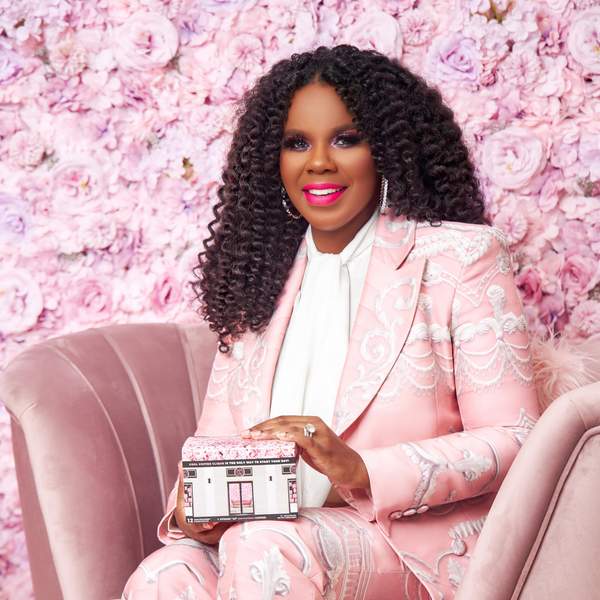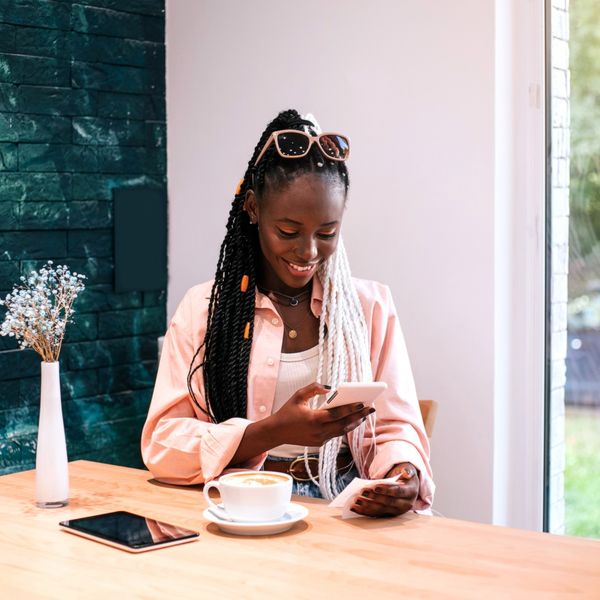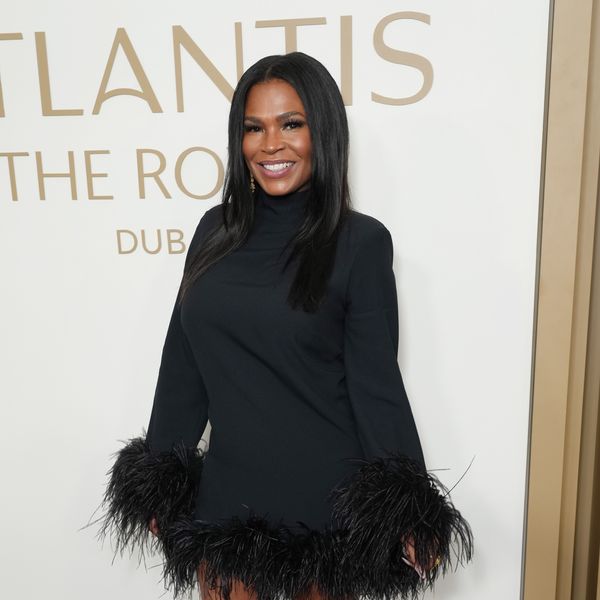Courtney Adeleye is no stranger to making multi-million-dollar moves that not only change lives but empower others to do the same. As the founder of The Mane Choice—a line of natural haircare products that went from her home to the shelves of major stores like Target—she took $500 and turned it into more than $100 million within a few years. Her online brand is undeniable—bright, bold, and uber-confident—and her more than 380,000 followers on Instagram alone eat it up.
Her most recent transition has been her biggest yet. She struck a deal with MAV Beauty Brands for millions more, which meant The Mane Choice would be acquired by the Canadian company and more doors would be open for partnerships like the Generational Advantage Fund that would help women build generational wealth. She also made a personal investment, to the tune of $30 million.
Yep. Sis, is about that life. "Doing the acquisition gave me the ability to expand and to continue to grow in other areas of business that I wouldn't have had the ability to do," Courtney said in a recent interview with xoNecole. "It's not only a financial thing but it's about a resource, a growth, and an understanding. It put me in a position to do other things I really enjoy which includes pouring back into women, investing back into female brands, and creating the conglomerate I have today."
We talked with her more on those other things, which right now fall under the umbrella of her newest venture, Olbali Corp. The conglomerate houses brands Lily Frilly (where her 7-year-old daughter is the CEO), Foolproof Body, Cool Coffee Clique, and POPtritional.
Check out what Courtney had to say about how she finds multi-million-dollar sweet spots in business, how she remains inspired as an entrepreneur, and her advice for other Black women who want to continue to grow and advance in building the lives of their dreams:
You've got your hands in multiple businesses. What inspires you to pursue certain industries? How do you know it's worth the risk?
I don't think there's an industry out there that I'm not interested in. I can look at a category and I can see what we call in business the 'white space.' I always think, 'What are those opportunities that could possibly exist?' So creating a company like Olbali, we're going to play in different areas from a consumer-product goods perspective, whether that be food or health and wellness.
I thought, 'Do I see an opportunity to do it better? Do I see an chance to give the industry something it doesn't have?'
Even with my daughter's brand, I definitely feel representation matters. Sometimes we can't achieve what we haven't seen. So, it's about putting her in a position where she can speak to little girls across the world to let them know they can do it, too. I definitely felt like we had a lack of representation in a community in regard to what we see in the retail world and what we see on TV. You're never too old and never too young. Entrepreneurship is a special gift from God and you have to give that back to the world.
This is so fascinating, because you've been able to take several businesses and turn them into platinum. Tell me more about this 'white space' concept.
A lot of times, we're motivated only by what we see. It's easy to pinpoint what's already been done. Ultimately, when you look at a business, there are not many things out there that are totally new or haven't been done before, but what makes a business special is doing it in a way that hasn't been done before—doing it in the unique way you have to offer.
I see a lot of entrepreneurs who think they're too young or too new and they think they have a lot missing, but what's missing is what makes them special. I always say don't be afraid to infuse that thing that makes you different into your brand.
Take an industry, such as coffee, which you could say is a boring industry. I look at it and say, "No, there's a lot of white space there because if it's so boring, who can make it dope? Who can make it classy? Who can make it something everyone would want to be part of?" I think there's a lot of white space in everything we do. You have to look at something and innovate. It's easy to say, "Hey, this is how it's always been done," but in order to be innovative you have to be willing to take those risks and do things differently.
For example, with [Cool Coffee Clique], it's very risky to make coffee [packaging] pink. It's like, 'Am I excluding men?' But I have to be confident in what I have to offer and say, "But it's been done before in black, brown, and in every traditional way. How do I make it interesting?" That's where that white space comes in.
That's awesome. We have to tap into those white spaces where we can create what we want to see on the market. So, to some, you pretty much made it when you started earning millions. What's the key to continue growing and leveling up?
We can all agree that no matter what your age, there's experience there that's going to give you the jump on entrepreneurship or innovation. And I have to continue doing that, to continue innovating. That experience is the very thing you amplify and use for your brand. It's important to have an understanding that you can grow as you go. You don't have to seek funding in order to make it. I started with $500. I didn't have a line of credit or a credit card.
Also, it's understanding that distractions come in many shapes, forms, or fashions. It could be a relationship, time, or lack of support. Distractions are the No. 1 deterrents to someone going into business, no matter what age you are.
Sometimes, isolation is going to help you ascend to the next level. You're going to have to lock yourself in that room in order to think. It's going to take you not being at those functions sometimes, which, as you mature, you understand that's not always where it's it. I have to think about my future.
Ask yourself, "How do I compare to people who are dominating in the industry?" It's not about comparing to say, "I need to mimic that," but what elements about that brand inspire you? There's something you can do to make your own brand attractive. Many times I'll sit with entrepreneurs and ask, "Do you think you have the best product?" and many times, the scary thing I hear, is "No I don't." Well, why? Whatever that reason is, you've got to address it and fix it.
You're looking at someone else's social media page and saying, "I think everything they post is clean. Everything is dope." Meanwhile, you have the ability to come close, even if you're not mimicking it--even if you're inspired to go get an AirBnB, for example, and take some great pictures. You say, "I'm going to call some models in and take some product shots."
Business is business. You have to understand you're taking the market share from somebody. I'm in the coffee industry, so I understand, "Hey Starbucks is dominating. How can I take that consumer? How does that translate to the consumer? What are the things I can do?"
I'm always about leveling up—always try to do it better. If I did something great last year, how do I do better this year?
Follow Courtney Adeleye and learn more about her brands via Instagram @courtneyadeleye, or via Olbali's website.
Featured image courtesy of Olbali Corp.



























